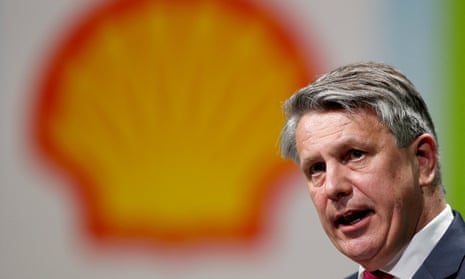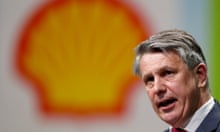Shell is to exit its joint ventures with Russian state energy firm Gazprom, a day after BP said it would offload its 20% stake in Kremlin-owned oil firm Rosneft, as British businesses scrambled to distance themselves from Vladimir Putin.
The oil company said it would “exit its joint ventures with Gazprom and related entities”, which are worth about $3bn.
The planned sales include its 27.5% stake in the Sakhalin-II liquefied natural gas facility, its 50% stake in the Salym Petroleum Development and the Gydan energy venture.
Shell will also end its involvement in the Nord Stream 2 pipeline project, in which it holds a 10% stake worth $1bn. Germany, which was due to double its Russian gas imports via the pipeline, had recently called a halt to the project in the light of Russia’s invasion of Ukraine.
“We are shocked by the loss of life in Ukraine, which we deplore, resulting from a senseless act of military aggression which threatens European security,” said Shell’s chief executive, Ben van Beurden.
The company said its staff in Ukraine and other countries have been working together to manage the company’s response to the crisis locally. It will also work with aid partners and humanitarian agencies to help in the relief effort.
“Our decision to exit is one we take with conviction,” said Van Beurden. Shell will still have a network of petrol stations in the country.
The business secretary, Kwasi Kwarteng, who spoke to the Shell chief earlier on Monday, said the company had made the “right call”.
“There is now a strong moral imperative on British companies to isolate Russia. This invasion must be a strategic failure for Putin.”
Asked whether the government had applied pressure on Shell and BP to exit Russia, one Whitehall source said ministers had been pushing at an open door, with the companies keen to disassociate themselves from Putin’s Kremlin.
“We cannot – and we will not – stand by,” said Van Beurden. “Our immediate focus is the safety of our people in Ukraine and supporting our people in Russia.
“In discussion with governments around the world, we will also work through the detailed business implications, including the importance of secure energy supplies to Europe and other markets, in compliance with relevant sanctions.”
At the end of 2021, Shell had around $3bn in non-current assets in its Russian ventures.
“We expect that the decision to start the process of exiting joint ventures with Gazprom and related entities will impact the book value of Shell’s Russia assets and lead to impairments,” the company said.
This could indicate that the cost of exiting its Russian joint venture will exceed $3bn, given the costs Shell may incur in physically extricating itself from the vast, technically challenging Sakhalin-2 project, which requires expert personnel and highly specialised equipment.










